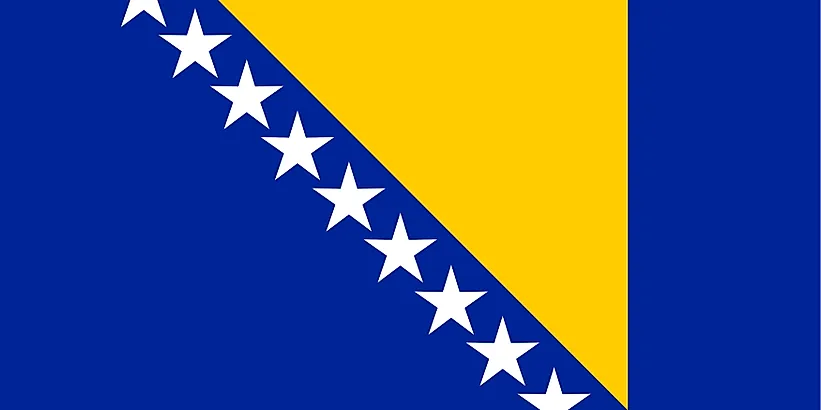
Bosnia And Herzegovina
| Continent | Europe |
| Capital | Sarajevo |
| Population | 3,861,912 |
| GDP | $42.53 Billion |
| GDP per Capita | $11,000 |
| Dialing Code | +387 |
| ISO Code (2-letter) | BA |
| ISO Code (3-letter) | BIH |
Bosnia And Herzegovina Landscapes






About Bosnia And Herzegovina
Welcome to Bosnia and Herzegovina, a country where East meets West in the heart of the Balkans. This nation of approximately 3.3 million people occupies 51,197 square kilometers of diverse terrain, from rugged mountains to fertile valleys. Known for its rich cultural heritage, historical significance, and natural beauty, Bosnia and Herzegovina represents a unique crossroads of civilizations, religions, and traditions.
Geographic Features and Natural Beauty
Bosnia and Herzegovina’s geography is predominantly mountainous, with the Dinaric Alps running through the country from northwest to southeast. The landscape features dramatic limestone formations, deep river canyons, and dense forests covering approximately 50% of the territory.
The country’s rivers are among its most striking natural features, particularly the emerald-green Neretva and the pristine Una River. The Sutjeska National Park, home to one of Europe’s last remaining primeval forests, showcases the country’s remarkable biodiversity.
The region around Mostar is famous for its Mediterranean climate and karst topography, while the capital Sarajevo is surrounded by the Olympic Mountains, which hosted the 1984 Winter Olympics and continue to offer excellent skiing opportunities.
Cultural Heritage and Traditions
Bosnian culture represents a unique fusion of Ottoman, Slavic, and Central European influences. This cultural diversity is reflected in the country’s architecture, cuisine, music, and traditions. The historic city of Mostar, with its iconic Old Bridge (Stari Most), symbolizes the meeting of Eastern and Western civilizations.
Traditional Bosnian crafts include copperwork, woodcarving, and carpet weaving. The country’s musical heritage features sevdalinka, an urban traditional music genre that emotionally expresses love, longing, and loss.
Bosnian cuisine combines Balkan and Middle Eastern influences, with dishes like ćevapi (grilled meat), burek (filled pastries), and Bosnian coffee served in traditional copper sets becoming famous beyond the country’s borders.
Historical Journey
Bosnia and Herzegovina’s history spans ancient Illyrian settlements, medieval Bosnian kingdoms, and five centuries of Ottoman rule followed by Austro-Hungarian administration. The medieval Bosnian state reached its peak under King Tvrtko I, leaving behind impressive fortresses and the unique Bosnian Church tradition.
The country became part of Yugoslavia after World War I and gained independence in 1992. The subsequent 1992-1995 war left deep scars but also led to the Dayton Agreement, which established the current political structure.
Modern Economic Landscape
Today’s Bosnia and Herzegovina is working to rebuild and modernize its economy. The country has significant potential in various sectors, including energy production, tourism, and agriculture. Hydroelectric power generation is particularly important, utilizing the country’s abundant water resources.
Tourism has grown significantly, with visitors attracted by the country’s historical sites, natural beauty, and winter sports facilities. The IT sector is emerging as a promising area of growth, particularly in Sarajevo and other urban centers.
International Relations and Global Position
Bosnia and Herzegovina maintains active participation in regional initiatives and is a potential candidate for European Union membership. The country works closely with international organizations on various development and reform programs while maintaining balanced relationships with neighboring countries.
Did You Know?
• The Sarajevo Film Festival, born during the siege of Sarajevo, has become one of Europe’s largest film festivals?
• The Bosnian city of Visoko features what some believe to be ancient pyramids, though this remains a subject of scientific debate?
• The Stari Most (Old Bridge) in Mostar was originally built in the 16th century and has been a UNESCO World Heritage site since 2005?
• Bosnia and Herzegovina is home to the last remaining jungle in Europe, the Perućica Forest?
Conclusion
Bosnia and Herzegovina represents a remarkable example of cultural diversity and resilience. From its medieval fortresses to its Ottoman bridges, from its pristine rivers to its modern cities, the country offers visitors a unique glimpse into European history and contemporary life. As it continues to develop and heal from its recent past, Bosnia and Herzegovina remains committed to preserving its multicultural heritage while building a prosperous future.